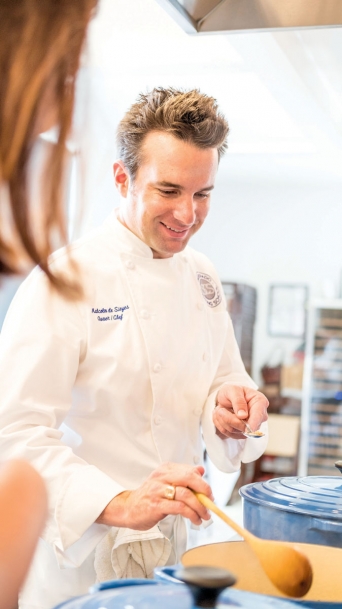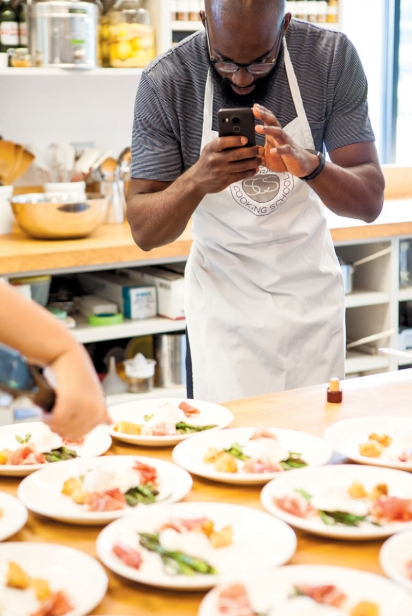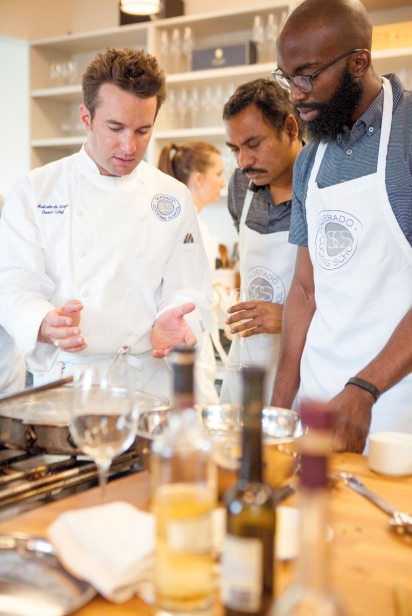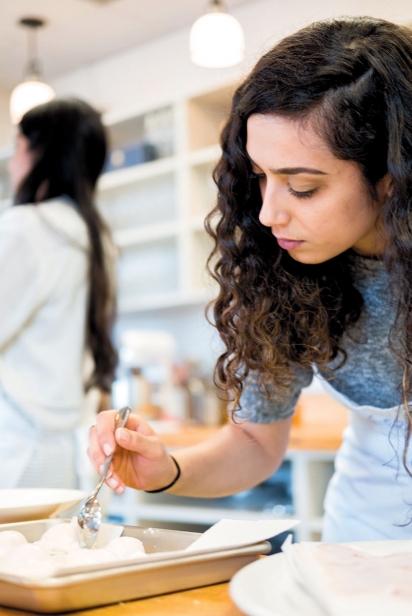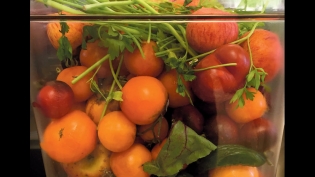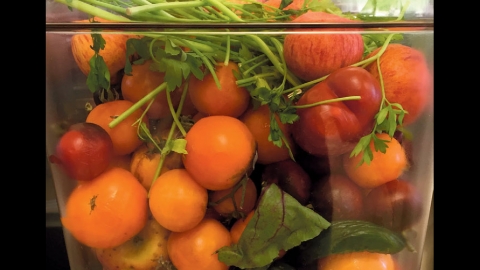Silverado Cooking School
A Grandfather’s Lesson Comes to Life
Malcolm de Sieyes, owner of Napa’s Silverado Cooking School, did not intend to start a cooking school in Napa. Raised in Massachusetts, de Sieyes has dabbled in careers as diverse as emergency medical technician, photography and coordinating the rescue of stranded sea mammals.
But de Sieyes developed a powerful connection to food and cooking when, as a young boy, his grandfather taught him to fish in the mythical waters of the North Atlantic (thanks, Herman Melville), then served their catch that night at the family’s table, alongside vegetables plucked earlier in the day from the grandfather’s garden.
The lessons learned from his grandfather stayed with de Sieyes, who says he has always found ways to bring cooking into everyday life, whatever his occupation at the time.
Likely influenced by his paternal aunt, Mary Risley, renowned owner/operator/chef of now-closed Tante Marie’s Cooking School in San Francisco, de Sieyes eventually enrolled in Tante Marie’s Full-Time Professional Culinary Program. Upon graduating, de Sieyes lived and cooked in France, where he also has family, and also cooked at restaurants in the States before launching a catering business out of a small trailer in the East Bay.
His talents for cooking and for teaching were readily apparent to clients and guests, who oft en asked him about offering classes. Intrigued by the idea, de Sieyes began to look for a location. He found one at the corner of Silverado Trail and Highland Drive in Napa, and applied for a small business loan to build out the space that once housed El Rancho Market, repurposing the spot from a store that sold food into a school that teaches about food and cooking. And, just like that, de Sieyes’s grandfather’s lessons about the importance of thoughtfully sourced and prepared food found a new wine country home, Silverado Cooking School.
Open since October 2012, Silverado Cooking School allows de Sieyes to keep cooking on a daily basis, but the real driver, he says, was bringing people together to cook and eat. “I wanted to facilitate an environment where people can cook well together, a place where you do not have to do all the prep or the cleanup.”
Guided by the sea-to-table and farm-to-table ethos learned as a child, de Sieyes crafted a curriculum that focuses on the simple pleasures of cooking and eating together. Private classes for groups such as a recent team from software giant Salesforce, are extremely popular. The school also offers regularly scheduled classes open to individual reservation with descriptions like Sparkling Sunday Brunch; Simply Satisfying Weekday Dinners; Pasta—Ravioli, Tortellini and More!; and Couples Dinner—Hands On.
“People want to cook something they can make at home,” he says. “Come in, have a good time, then replicate the experience at home. That is what it is all about.”
The class that hews most closely to de Sieyes’s farm-to-table roots is the Napa Farmers’ Market Lunch class, offered the first Tuesday of the month, May through October. Participants meet at the Napa Farmers’ Market to be personally guided through the booths by de Sieyes, who greets each purveyor by name. It is clear he has been here before. He instructs students on what to look for in choosing the very best of each ingredient, then allows them to select the items that he will purchase to take back to the school and teach them how to transform into a three-course meal.
De Sieyes lives a few miles from the cooking school with his wife, Kim, and their daughter on a small farm that is the source for much of the school’s produce. Known as Stone Tree Farm, the two-acre property is managed by Ricardo Espinoza, who oversees an incredible array of flora, and even some fauna: 40 fruit and olive trees ring the property and raised beds of everything from Russian kale and beets to frisée, kohlrabi and radicchio create a nearly year-round supply of fresh produce for the family, the school and the farm’s booth at the Napa Farmers’ Market. Espinoza works with de Sieyes and chef Frances Wilson, who shares teaching duties with de Sieyes, to deliver just-intime, peak-season fruits and vegetables. During summer, that likely means baskets of peaches and boysenberries, tomatoes, beans and some interesting heirloom radishes destined for the farmers’ market.
Intentionally, there are no wine grapes or grapes of any kind planted at Stone Tree Farm. “Food is as important to Napa as wine,” de Sieyes says, “and we need more really good food.” De Sieyes spends about half of his time on the farm (the other half is spent teaching at the school), crafting a farm that can sustain his family, his community and his locavore ideology.
One of the first tasks he undertook after purchasing the property five years ago was to reduce the farm’s heavy water use. He removed broadcast sprinklers in favor of drip irrigation, pulled up ornamentals and other thirsty plants and stopped watering the almond trees. Other steps included building a coop for the family’s 30 chickens (which are fed scraps from the school), designing and planting an herb garden and putting in plants that, unlike many fruiting plants that bring up the most nectar during the cooler morning hours, offer a source of nourishment for birds and the farm’s two bee colonies throughout Napa’s long, hot summer days. The farm is powered by 48 solar panels.
With Espinoza, de Sieyes continually works to make the school, the farm and its beautiful garden a closed-loop system where the farm is the source of its own seeds and fertilizer and nothing is wasted.
To see the farm in action, sign up for the Stone Tree Farm Lunch class that brings small groups to the family homestead to pick their own produce before returning to the school to cook.
It all works for de Sieyes, who set out to create a place where the quotidian joy of cooking and eating together is meaningful. “I really wanted a place where people can do that,” he says. By uniting farm, community and school and sharing resources betwixt and between them, de Sieyes has taken one small step to make Napa a better place.


